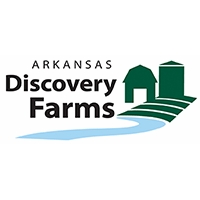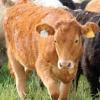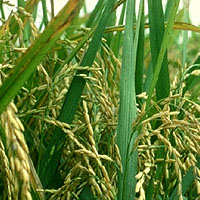Water Conservation
Rain gardens help protect water quality by reducing the polluted runoff that reaches our lakes, streams, and rivers.
"Approximately three-fourths of the Earth's surface is covered by water. However, most of the water in the world is unavailable for use, as 97.5 percent is saltwater and 1.75 percent is stored frozen in ice caps and glaciers.
This leaves us with less than 1 percent of liquid fresh water found in lakes, streams and underground aquifers. For this single reason, wise planning, use and conservation of our limited water resources is essential."
(quote from Arkansas Cooperative Extension Service's AG1290 - Arkansas Watershed Steward Handbook)
Rain gardens help protect water quality by reducing the polluted runoff that reaches our lakes, streams, and rivers.
Farmers and ranchers in AR irrigated about 73% of their total farmland, the largest percentage in the U.S!
Landscape irrigation is estimated to account for nearly one-third of all residential water use, totaling nearly 9 billion gallons per day.
The Arkansas Water Resources Center operates a fee-based water quality lab as a service to the State. Anyone can submit a water sample for water quality analysis.
Explore your watershed and discover policies that help protect your drinking water.
Stormwater runoff carries pollutants into the lakes we use for drinking water! Learn how to manage your runoff: slow it down, spread it out and soak it in.
Reconciling the "three pillars" of social, environmental, and economic performance.
Landowners may be available for assistance for erosion reduction, unpaved road management, and even feral hog control!
 |
Arkansas Discovery FarmsThis working farm model from the University of Arkansas' Division of Agriculture assesses Best Management Practices (BMPs) related to water conservation and reduction of nutrient and sediment loss. |
 |
Livestock |
 |
Row CropsNutrient Management for Row Crops |
 |
Water Conservation at Home |
The Public Policy Center exists to provide Arkansans with timely, credible, unbiased and research-based information and education about public issues. Water-related issues include Arkansas Watersheds and Stormwater Education.
AAES is the primary research support agency for Arkansas farmers and ranchers, food processors, related industries and consumers. Research topics include families, communities and natural resources associated with Arkansas agriculture.
CSES faculty research involves primarily agricultural interests in providing food and fiber, but faculty also research problems affecting communities and environmental concerns.
AWRC operates the Water Quality Laboratory located in Fayetteville, Arkansas.
The Partnership promotes a conservation ethic to enhance the ability of its members to serve rural and urban communities and strives to more effectively assist private landowners in meeting the conservation challenges of the 21st century. Partnership members include:
Arkansas Association of Conservation Districts (AACD)
Arkansas Association of Conservation District Employees (AACDE)
Arkansas Resource Conservation and Development (ARC&D) Council
Arkansas Forestry Commission (AFC)
Arkansas Natural Resources Commission (ANRC)
Natural Resources Conservation Service (NRCS)